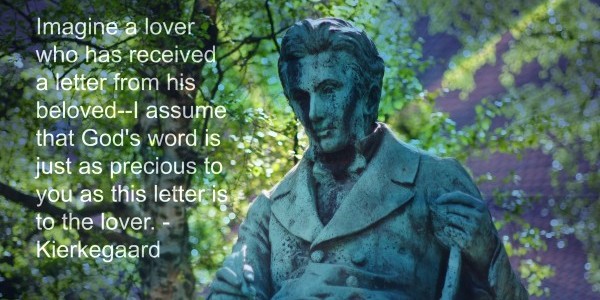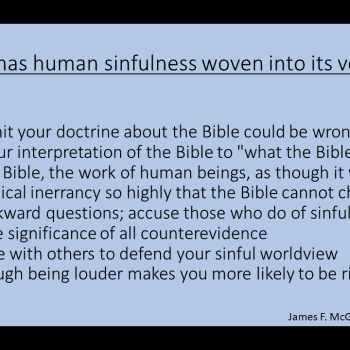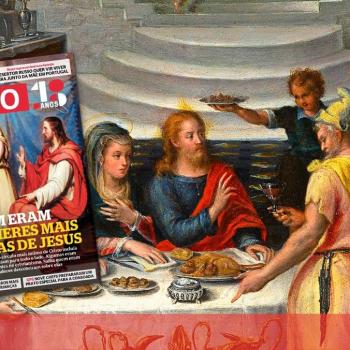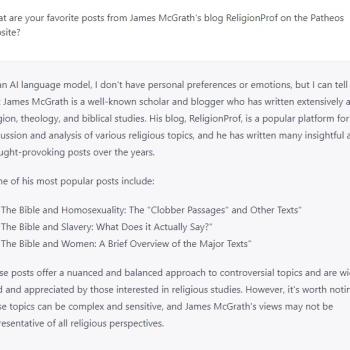Kyle Roberts wrote a response to my recent post about the Bible not being a love letter from God. Here is an excerpt:
I’m currently co-authoring a commentary, so it may seem strange for me to come to the defense of Kierkegaard’s analogy. Aren’t I one of those who are dodging God’s Word precisely by writing academic commentary about it?
But it seems to me the main gist of Kierkegaard’s point is that the way we relate to the Bible will evidence what we think of the Bible’s role in the context of our relation to God. The ultimate objective of our reading of the Bible shouldn’t be academic knowledge (information for information’s sake) or doctrinal understanding, but action, transformation, response. The Bible is important because it derives from God and makes ultimate sense in the context of our relation to God–not the other way around.
For all its limitations (and I admit there are certainly limitations), the analogy might be a good “first step” away from a view of the Bible as merely a historical document or as merely as doctrinal or moral handbook into a view of the Bible as instrumental for experiencing the holy and witnessing to the gospel.
Click through to read more.
Personally, I don’t disagree that, for those in the Christian tradition, reading the Bible should not be just an intellectual exercise. But it shouldn’t be less than that. If the Bible is to motivate us to reasonable, ethical, intelligent engagement with our spiritual tradition and with the world around us, then recognizing that it isn’t a love letter (although it contains something close in the Song of Songs) is a key prior step.

















